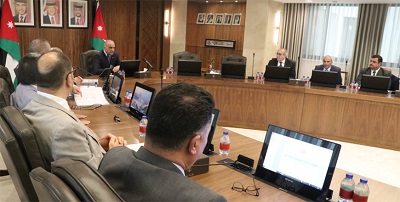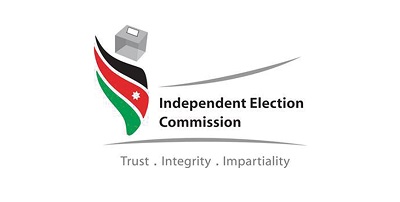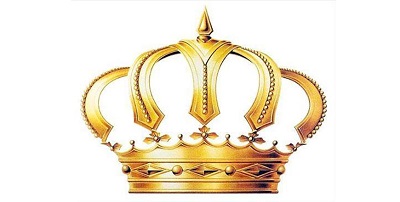Political activists, parliamentarians discuss Elections Law, propose amendments
Rana Husseini , The Jordan Times
AMMAN — Government officials, political activists and parliamentarians met on Saturday to discuss the 2016 Elections Law and find ways to amend it to reach a “Parliamentary” government in the near future.
Minister of Political and Parliamentary Affairs and Minister of State Musa Maaytah said it is important to “find means to empower the political parties in Jordan to ensure their strong presence in the Lower House of Parliament”.
“We have 47 licensed political parties in Jordan and the 2016 Elections Law encouraged the proportional list, which should help in increasing the number of political parties’ representation in the Lower House, but this is not the case because there is only one visible list,” Maaytah said.
The minister added that the civil society and the political parties should unite to ensure better representation in the Lower House of Parliament because this will reflect positively on the political life in Jordan.
The minister’s remarks were made during a one-day workshop entitled, “Towards an early national dialogue to revise the 2016 Elections Law”, that was held by Al Quds Centre for Political Studies (QCPS), the Jordanian Parliament Monitor (JPM) and the National Democratic Institute for International Affairs (NDI). The event was held at the Marriot Hotel in Amman.
A study conducted by QCPS, NDI, JPM and supported by USAID on the “Affects of the 2016 Elections Law on the structure and performance of the 18th Parliament” indicated that the law did not contribute in making any difference on the situation of the political parties’ representation in the Lower House.
“The number of winning deputies from the declared political parties stood at 15, while the number of undeclared political parties members who clinched seats in the 18th Lower House election stood at 23,” according to the study.
“The 2016 Elections Law failed to create the necessary circumstances to help enough political parties’ members to reach the Lower House and eventually create a parliamentary government,” the study revealed.
The main objective of the event, according to the Director of QCPS Oraib Rantawi, was to launch new and early initiatives to reform the electoral system in Jordan.
“We believe that the electoral system is the backbone of the political reform process because it is the most important legislation that the Parliament can approve after the Constitution,” Rantawi told The Jordan Times.
It is important to have a strong multi-party Parliament and to end up with a Parliamentary government, Rantawi added.
“It is important also to renew the elite in this country and not to keep recycling the elite and have them assume political positions,” Rantawi stressed.
He said he was hopeful that the participants will come up with recommendations in additions to the ones provided by his centre “to the government, Parliament and political parties in order to take it from there and activate the political and reform process in our country”, Rantawi added.
“Our role is to come with initiatives to encourage fresh idea and to enrich the public debate and to encourage the political parties and the civil society to pressure the government to adopt the recommendations,” said Rantawi.
The study made several recommendations to the government including “introducing amendments to the 2016 Elections Law to designate at least half the seats in the Lower House of Parliament for national and political lists”.
The study also recommended providing financial funding to the political parties to support its participation in the elections.
Another recommendation called for increasing the women’s representation in the Lower House of Parliament to at least 30 per cent to ensure gender equality and better representation for women in the highly populated areas.
Meanwhile, NDI Senior Country Director Arianit Shehu praised the Kingdom and its people for “always being one or two steps ahead on your pragmatic, progressive political reform path”.
“It is impressive to see senior government officials, current and former MPs, a wide specter of the political parties and ideologies, civil society, media, academics and political analysts coming together to debate the important issue of election reform,” Shehu told The Jordan Times.
The NDI official said the Jordanian political reform issues need to continue to be debated and resolved by Jordanians through constructive dialogue that is build around inclusiveness, transparency and accountability.
The importance of this debate becomes even greater and sets an example of a constructive reform process in this region marred by turmoil, violence and wars, Shehu added.
“I hope this is only the beginning of an open and inclusive political discourse ahead of the next election scheduled for 2020,” he stated.
Shehu stressed that the NDI will continue to support such avenues of communication and a public discourse among Jordanians to debate and decide on important issues for the benefit and for the prosperous future of Jordan.
Latest News
 Prime minister directs government to support IEC ahead of upcoming elections
Prime minister directs government to support IEC ahead of upcoming elections Parliamentary elections for 20th Lower House to be held on September 10 – IEC
Parliamentary elections for 20th Lower House to be held on September 10 – IEC Amman Chamber of Commerce says GDP grows by 4.4% in 2023
Amman Chamber of Commerce says GDP grows by 4.4% in 2023 King orders holding parliamentary elections in accordance with law, checks on electoral commission’s preparations
King orders holding parliamentary elections in accordance with law, checks on electoral commission’s preparations- N. Macedonia starts elections that could decide stalled EU talks
Most Read Articles
- Palestinian prime minister, Jordanian ambassador discuss humanitarian efforts in Palestine
- US president signs bill to provide new aid for Ukraine
- Senate president, Rwanda’s ambassador discuss bilateral relations
- Prime minister directs government to support IEC ahead of upcoming elections
- 'Sinwar Above Ground': Hamas official's revelation shocks Israeli Occupation
- “Israel” withdraws main infantry brigade from Gaza
- Iran cuts Syria presence after strikes blamed on Israel —monitor
- European Parliament overwhelmingly condemns Iranian strikes against “Israel”
- US Supreme Court seems split on Idaho abortion ban
- Vaccines saved at least 154 million lives in 50 years — WHO